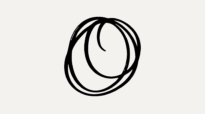Building your Career as a Unicorn Designer
Written by Kyle Schruder RGD, Creative Currency
Early in their career, many designers feel like they are faced with a choice. Do they specialize in one specific area of design to become the best in their field? Or do they add different tools to their toolkit to stand out from the crowd?
As part of the RGD's virtual In House Design Conference, I hosted a roundtable where participants discussed this topic and the role of “Unicorn Designers” in our industry. Here are some of the key insights from the discussion.
But first… what is a Unicorn Designer?
The first time I heard the term “Unicorn Designer” it referred to designers who could also code. By hiring such a designer, a company could get the capabilities of both a front-end designer and a developer. This concept got a lot of pushback, from myself included. It’s unrealistic and unfair to expect one person to competently fill the role of two specialists. Expanding this concept, a Unicorn Designer is someone who has a combination of skills from both inside and outside the “standard” design toolkit. Layout, typography and colour theory fit neatly into the design domain and most designers are trained in these areas. A designer becomes a “Unicorn” once they add capabilities to their toolkit that fall outside of that domain—skills like project management, recruiting or writing. This mix of skills makes a Unicorn Designer different from someone who specializes in one aspect of design—but does not replace the specialist.
The path to becoming a Unicorn Designer starts with adding a single skill
If you’re interested in becoming a Unicorn Designer rather than a specialist, you must follow yourpassions. Adding a skill because you think it will make you more valuable to employers will likely fall flat. It takes a lot of effort to get good at something new, on top of honing your core design capabilities. So, follow your instincts and learn more about the things you’re already curious about.
Here are a few skills that I have seen complement design capabilities:
Project Management: For those who are passionate about smooth workflows
Often in-house designers feel they are not given the time they need to do a good job and are given last-minute, unreasonable requests. This can be the result of a company not having people who own project management, especially across functions. A Unicorn Designer can add value by finding ways to improve the workflows for how design and other business units work together. By learning about the best practices of project management and finding out more about the departments you work with and how they operate, you can find better ways to work together.
Copy Editing: For those who love to pore over every word
Often the designer on a project is one of the last sets of eyes on content. Catching typos or areas where the text isn’t flowing correctly can be a great help to those who are focused on the writing alone. I’ve found the best result comes from working on content and design simultaneously, so the design can inform the content and vice versa. This effect is amplified when the designers on the project are as passionate about the content as the writers, wanting to work together to find the best way to drive the key messaging home.
Recruiting: For those who love building relationships
Many small organizations don’t have a dedicated HR person, so it comes down to internal staff to fill that void. This is most often apparent in recruiting—a team reaches out to their internal networks to fill new roles and maybe posts some listings on job boards. There is a lot of opportunity for people within smaller businesses to help the organization build things like screening criteria, interview formats, questions and recruiting approaches. Recruiting is a skill that is vital to becoming a manager. The earlier you can get familiar with this process, the better.
What to look out for as you build your career
Unicorn Designers are great in companies that encourage experimentation and collaboration. When you can work cross-functionally and be genuinely curious about what other teams do, you’ll find your capabilities proliferate. You’ll also add unique value to your organization and even add new perspectives to your design practice.
Unicorns are not meant to replace hiring multiple specialists. Great companies understand this difference. Bad companies look for one person to be their HR team, web designer and bookkeeper. So when you see job postings looking for a Unicorn, try to get a sense of which end of the spectrum they fall on.
Being a Unicorn Designer is about being proud of your diverse skillset
I’ve seen many designers sell themselves short by hiding their background, certain skills or passions. They are afraid that revealing this will make them seem different or lesser than the “real designers.” We need more designers from a variety of backgrounds, with their own unique experiences. Diversity is necessary for keeping our industry vital and we need to embrace designers from all walks of life. So I hope we all encourage each other to share these stories, rather than hide them.
In the end, being a Unicorn Designer requires you to be able to describe yourself and your path as adesigner. There may be a thousand designers out there, but how many have the same background as you? How many have the exact set of passions and capabilities? The road to becoming a unicorndesigner begins when you decide how you want to tell your story. I hope someday I’ll get to hear it!
Certified and Provisional Members who are interested in contributing content to the RGD website are invited to email RGD's Communications Coordinator, Rushika Shah, at pr@rgd.ca.

Kyle Schruder RGD
Creative Currency
I lead design at Creative Currency, leveraging my background in editorial design and branding to lead projects that help organizations tell their stories more effectively, present information more clearly, and engage audiences more deeply. I also serve on the RGD Board of Directors, and volunteer for committees, mentoring, portfolio reviews and more.
Tag
Related Articles


Diana Varma RGD












